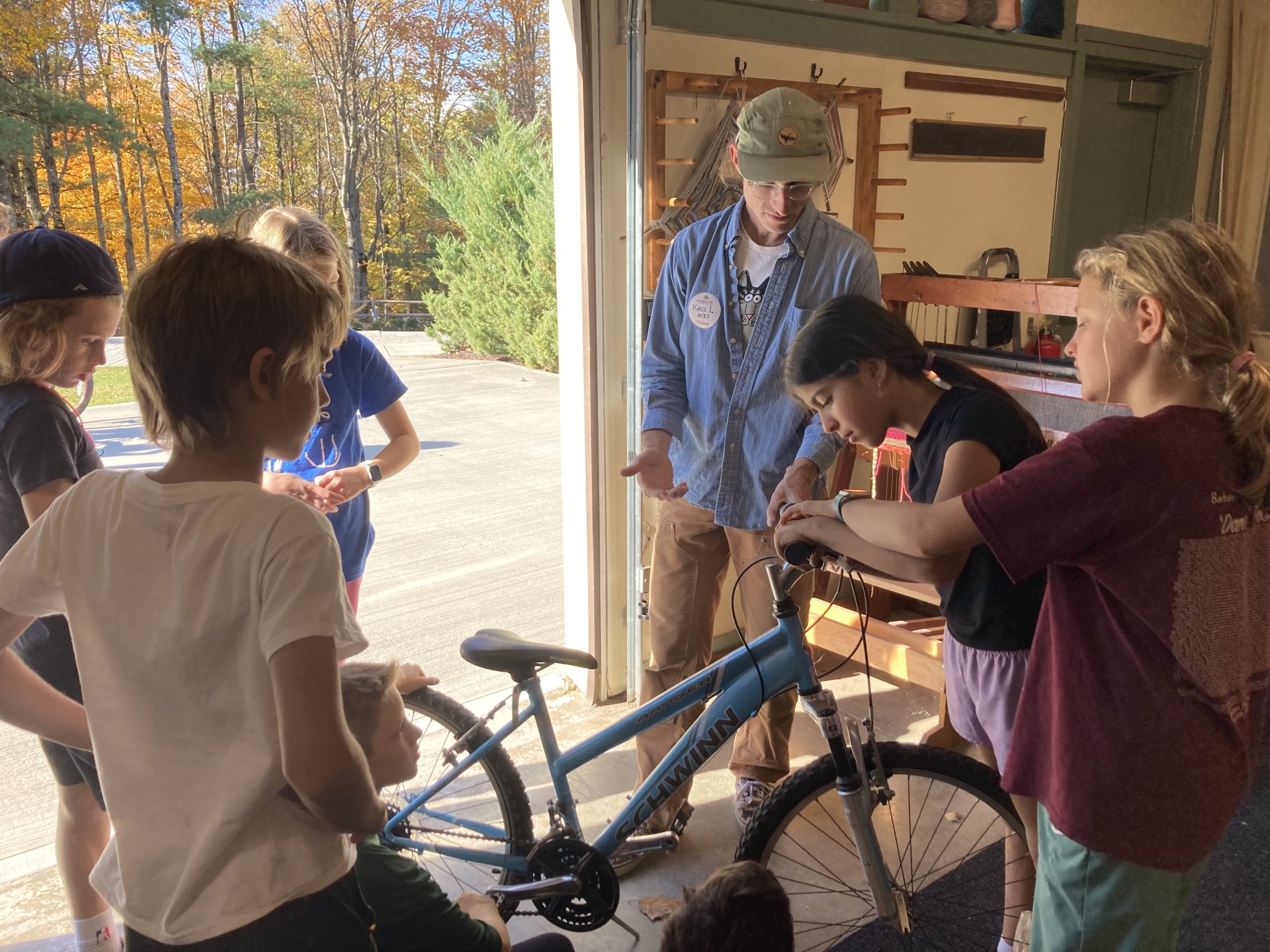Fostering a Repair Culture
November 6th, 2024
Our culture is dominated by planned obsolescence. When things break, we tend to throw them away. Less and less of us know how to fix things. The Repair Club aims to fix that! This Fall, thirteen Woodland Hill 4th - 8th graders had the opportunity to take the Repair Club elective, one of several initiatives WHMS is doing as part of a larger “Fix Forward” grant we received from the organization Culture of Repair in conjunction with the Robert C.Parker School. In the Club, students learn the importance of sustainability and the idea of a circular economy, which extends the life span of objects by reusing them and recycling them.
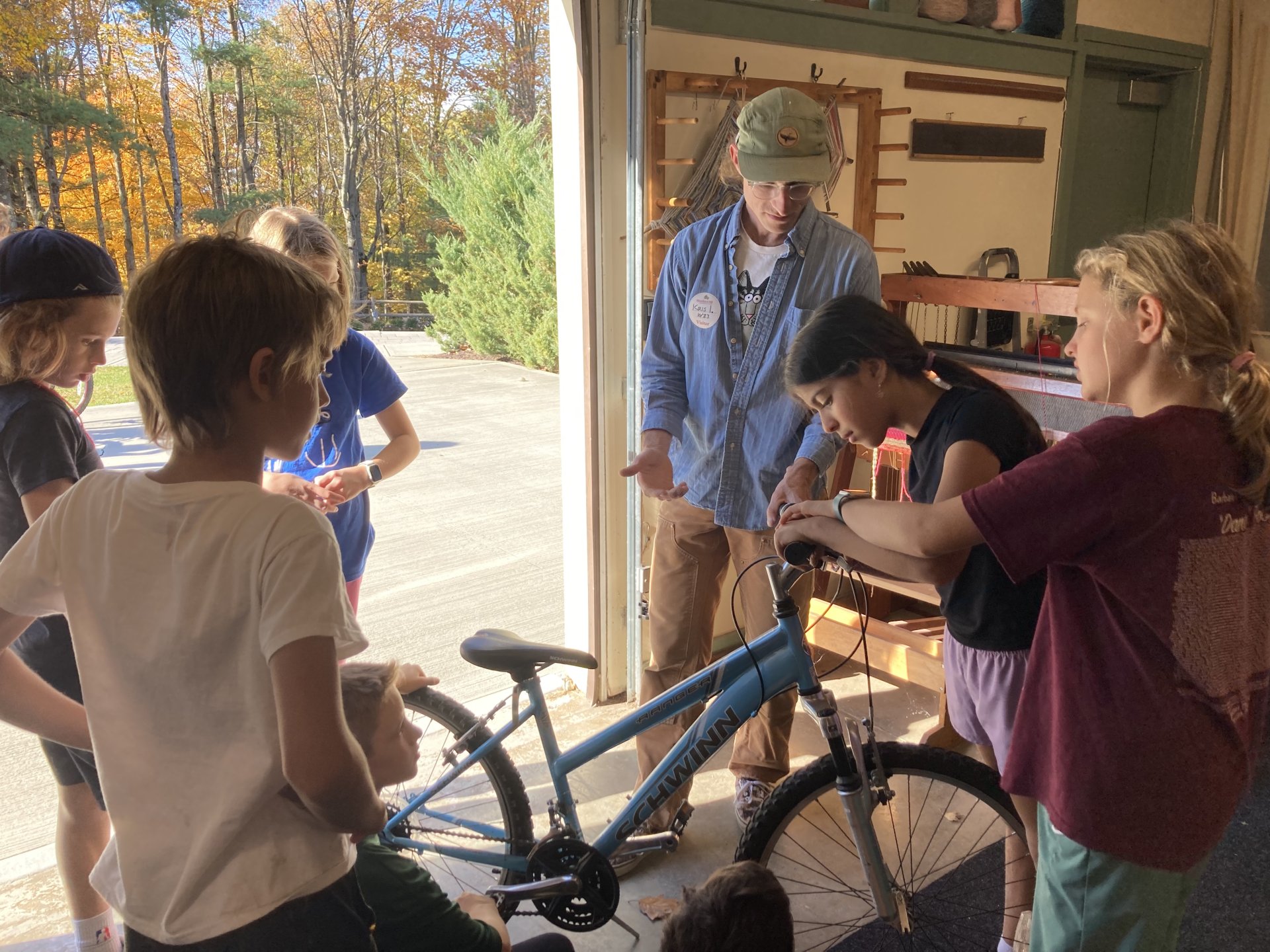
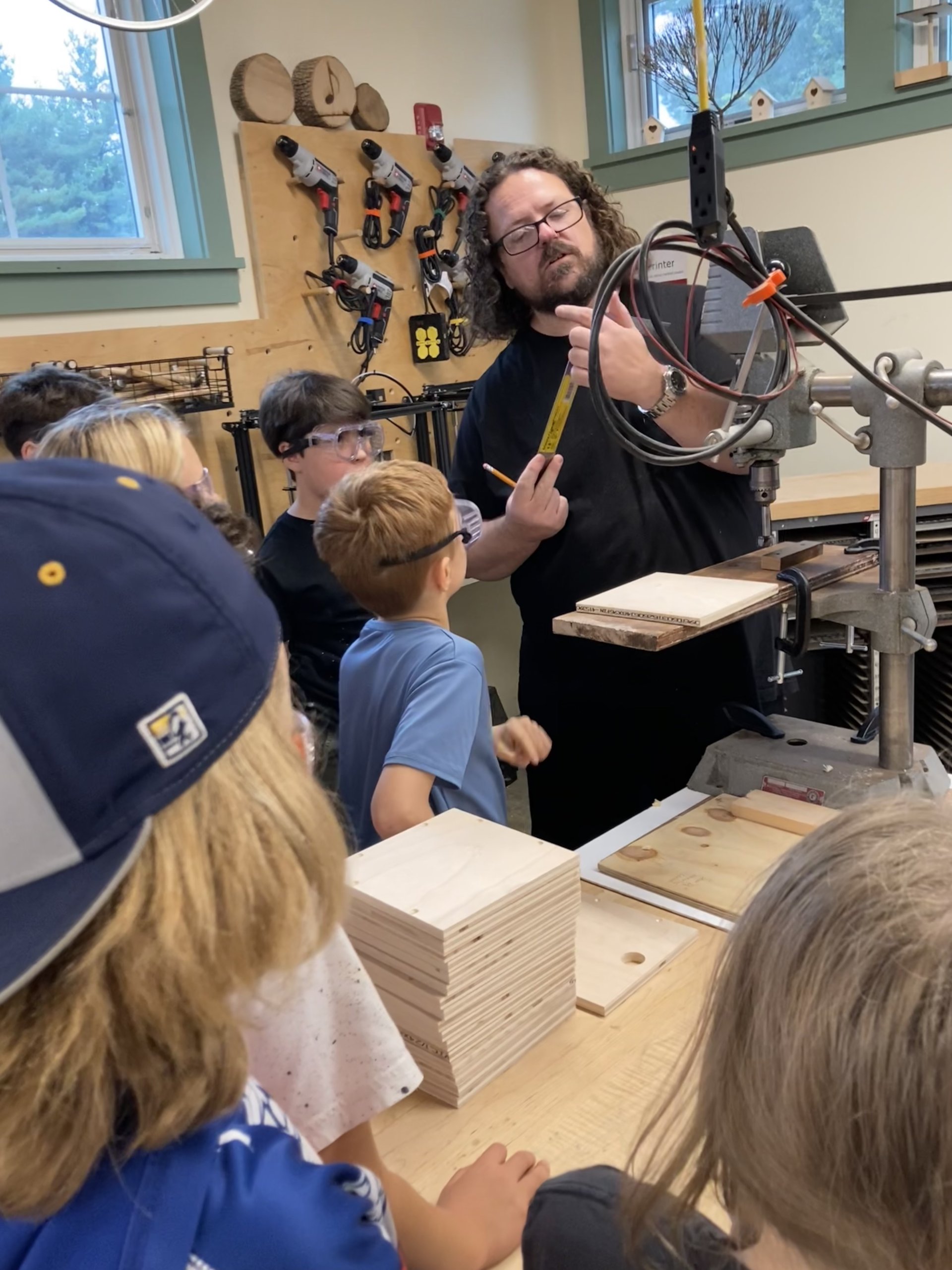
Repairing things is important because it helps our world become more sustainable; it is also a way to preserve items that are meaningful or sentimental to us that might be damaged. In this way, we are cultivating a culture of repair at WHMS. The students quickly became the facilitators of the club: they designed flyers and intake forms, advertised their services, gathered broken objects from around the school and tried to fix them. All of these activities work to create a repair mindset in the students, one which aligns with Woodland Hill’s core values of community and sustainability as well as project-based, and child-centered learning. As the innovative resource Cultivating a Repair Mindset suggests, “A repair mindset enables and emboldens people to care more deeply about the world, the people, the objects, and the systems in which we’re all interconnected.”
Repair Club students also had the opportunity to build their repair skills by learning from a number of volunteer repair coaches from the community. Ted Riese is good at fixing electronics; in our class, he opened up a chromebook, showing students how to identify and find replacement parts to repair it. Kris Ivers is a member of the Troy Bike Rescue; he helped students use their senses to troubleshoot broken bicycles before introducing them to the tools and materials to do simple fixes. Jesse Roberts showed students how to operate a drill press and shared basic wood building skills. He brought in the pieces to construct a “Fix-It Cart” that will be stocked with tools and supplies that all students at the school will be able to use for on the spot repairs.
In addition to the Repair Club, WHMS has also hosted several Repair Cafés, and created the Rensselaer Repair Cafe in collaboration with the Parker School. Repair Cafés are free community meeting places. Community members bring broken items from their homes—clothes, furniture, electrical appliances, bicycles—and volunteers with repair skills fix them. These Cafes are part of an international organization. Founded by Martine Postma in Amsterdam in 2009, it is now a worldwide movement with pop-up repair cafes in many countries across the world. The Capital Region itself has 8 local repair cafes and there are nearly 70 in the greater Hudson Valley from Westchester County to Lake George. Hosting these Repair Cafes in K-8 schools is a great way to bring together older more experienced repairers and younger generations to cultivate a shared repair culture.
The “Fix-It Cart” Jesse helped the Rensselaer Repair Club construct is also part of the grant from the Culture of Repair. These carts will be equipped with child-friendly, age-appropriate tools and materials organized to meet the needs of children and function in a school setting. We will combine plans for the carts with tailored lesson plans, creating an environment for children to develop their interests, skills, and confidence as they become the repair champions of the next generation.
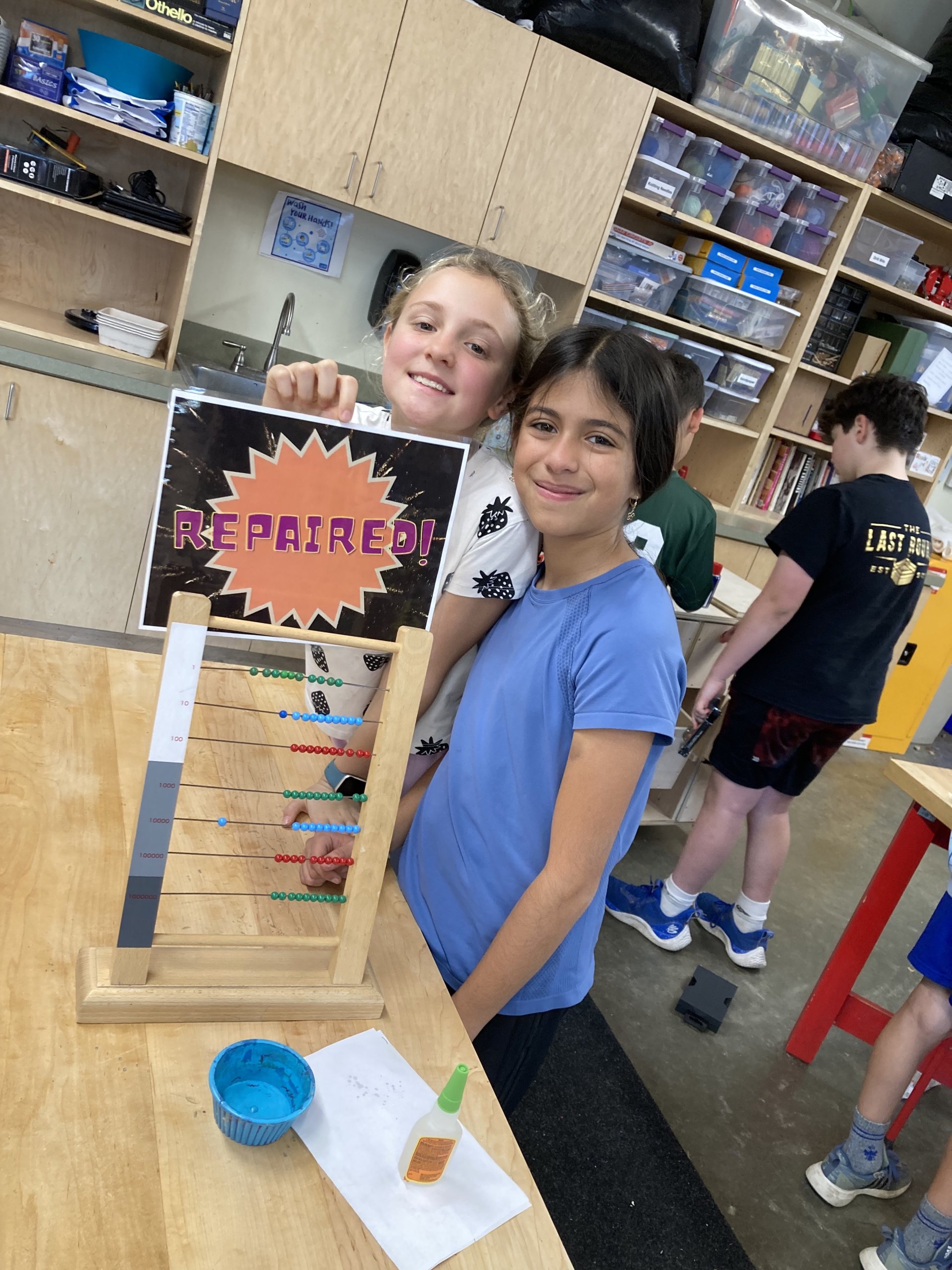
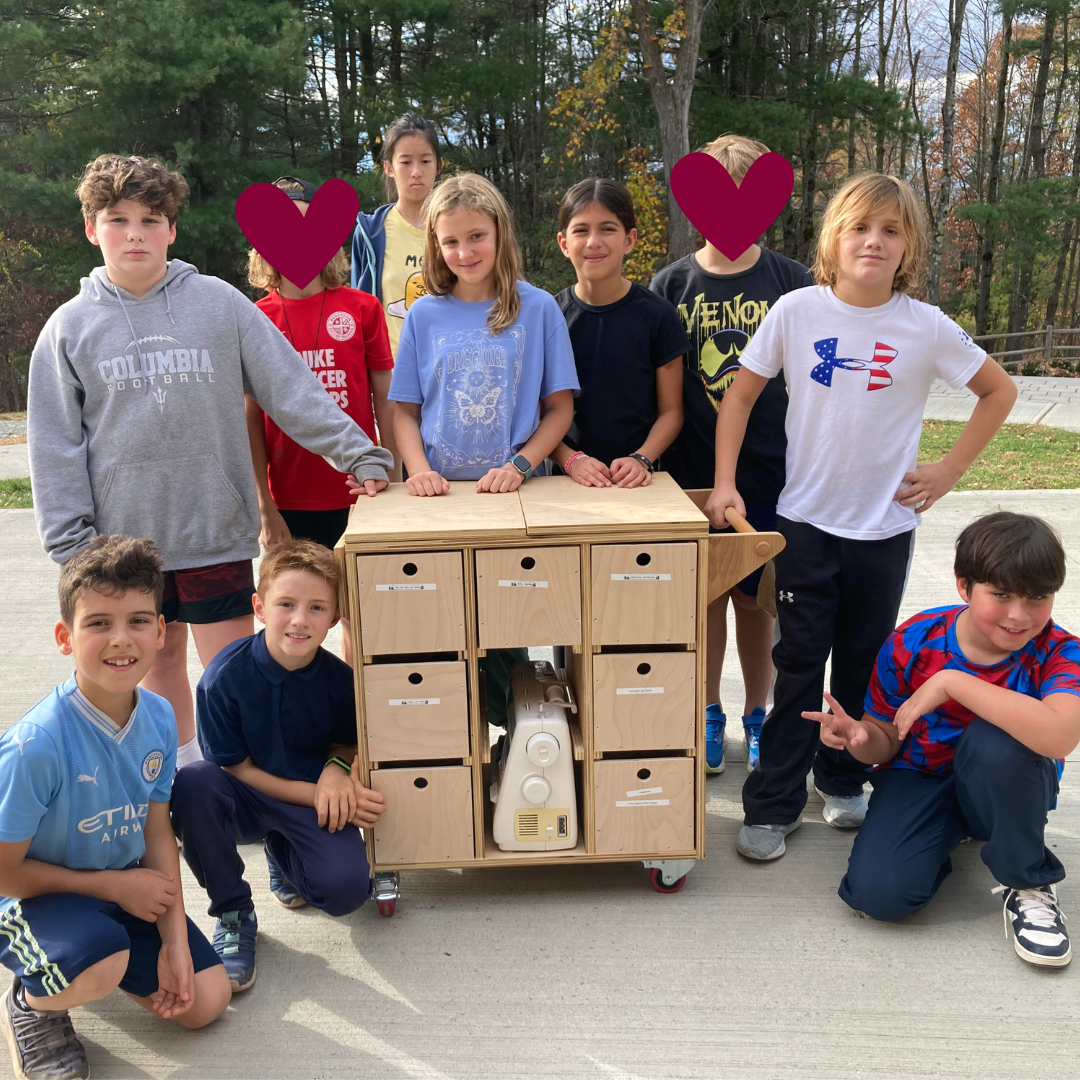
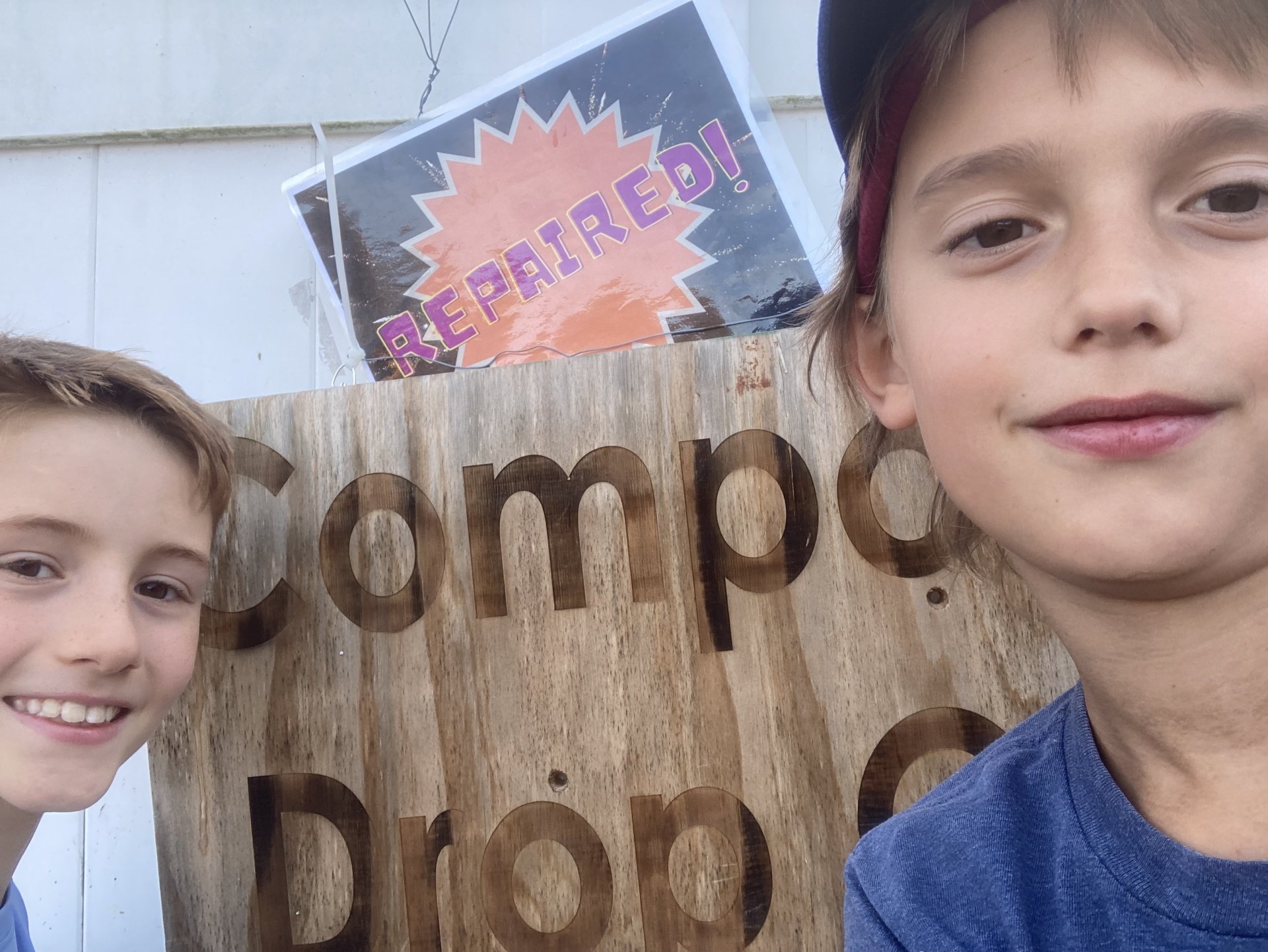
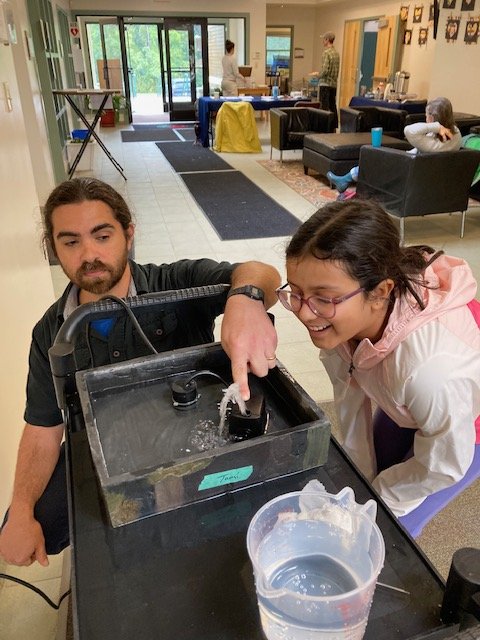
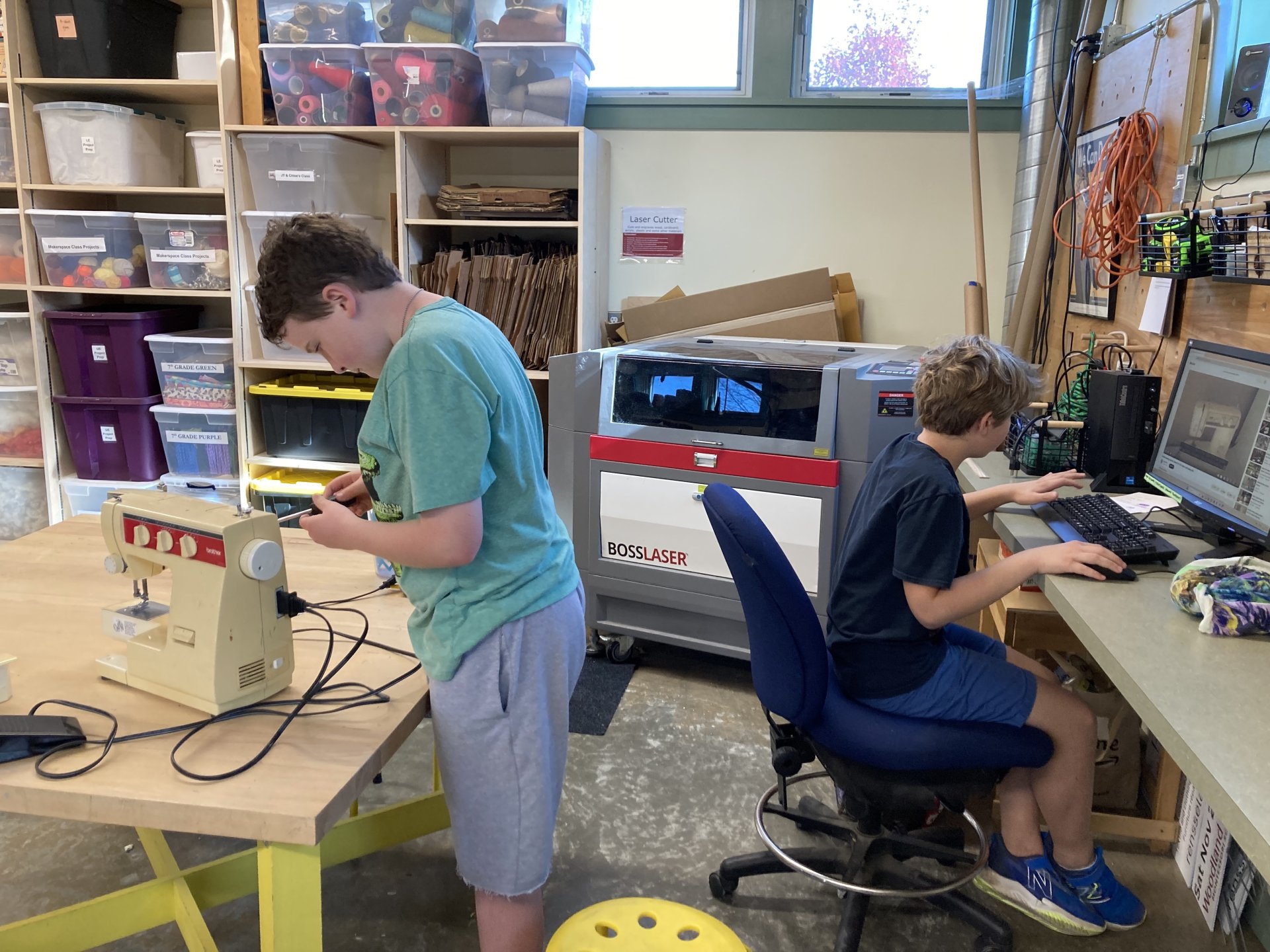
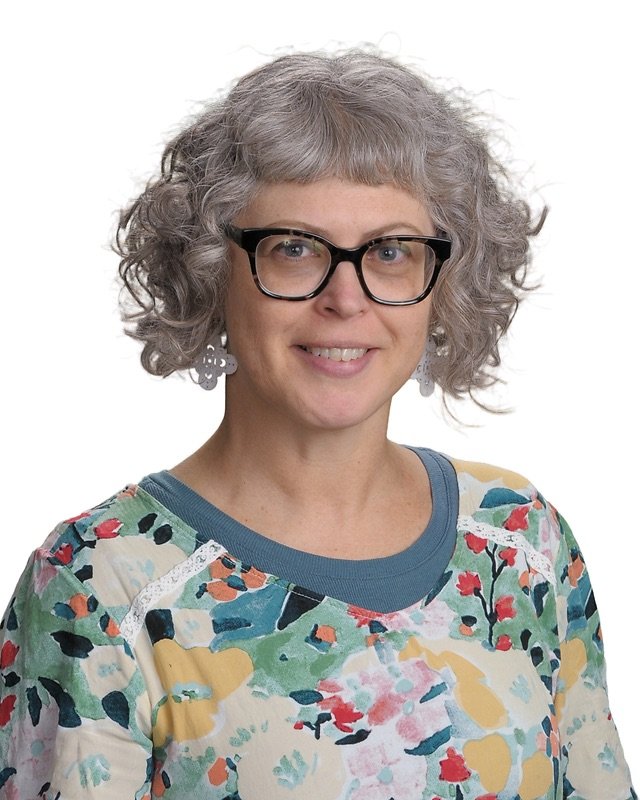
Megan Stasi
| Art and Makerspace Teacher |
Megan Stasi is a NYS Certified Visual Arts teacher with a bachelor’s degree in Art Education from SUNY New Paltz and an MFA in scenic design from Northwestern University. She has taught sewing at both the Albany Art Room and the Troy Arts Center, theatrical set design at Ulster County Community College, as well as Altered Book Workshops. Megan has also worked in the music business, as a theater designer, a muralist, and recently started a local non-profit community organization focused on upcycling fabric and yarns. Her own artistic practice includes fiber arts, oil paints, and printmaking. Megan joined the WHMS faculty in 2018. |
